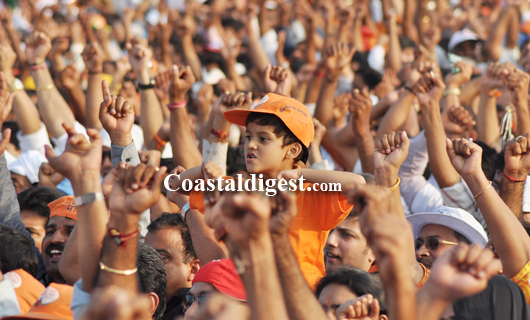
Mangalore, Feb 18: Thousands of people erupted in chants of 'Hara Hara Modi Jai Jai Modi' when Bharatiya Janata Party's prime ministerial candidate Narendra Modi entered Nehru Maidan in the heart of the city on Tuesday evening.
Even though Gujarat chief minister was scheduled to address over one lakh Mangaloreans gathered at the Maidan at 3:30 p.m., he reached at around 4.40 p.m.
Addressing the vast audience that had gathered at Maidan for 'Bharata Gellisi' rally, Modi accused the UPA government of failing to address basic issues during their ten-year tenure such as self-empowerment of villages, employment to the youth, upliftment of farmers and corruption.
He said that the development of ports in Karnataka was the need of the hour. The development of a single port is a narrowed thinking, whereas a comprehensive port-led development plan along the coastal belt will provide an economic boost to the region, including development of rail, road and air connectivity and infrastructure close to all the ports along the belt, he said.
He said that the comprehensive plan would include a network of cold storages and warehouse, along with institutions for the human resource development of people in the coastal region.
He said that improvement could be brought in the fishing sector by bringing advanced technology. Today, fishermen can track large shoals of fish using satellite positioning technology, which has been tested and implemented successfully in Gujarat. The people belonging to the fishing community (Mogaveeras) can be empowered through modern technology, he said.
If quality of life has to be improved in cities, emphasis should be laid on optical fibre network, gas grid to provide homes with gas connections, modern infrastructure and round-the-clock electricity, he said.
Stagnancy in IT sector
Modi pointed that there was stagnancy in the IT sector in the state as a result of not giving priority to research and development. “We are stuck in a low-end side due to our mediocre thinking. Research and development is a must to provide opportunities to the youth. Sectors such as IT, BT, genetic science and nano-technology should be laid stress on,” he advocated.
He promised employment for every youth in the country and improvement of tourism sector and garment industry. He also laid stress on skill development of youth to open up more opportunities.
“We have come with intentions, not promises”
Modi said that action plan and strategy for the development of each state should be decided according to the needs, requirement and strengths of that particular state.
“We have come to intentions, not empty promises. We want to bring change through our intentions,” he told the gathering, mocking the ruling Congress party.
Modi criticizes Congress
Modi said that the ten-year tenure of UPA government was the worst decade India had witnessed. Congress has destroyed the entire country. The government has drowned in corruption, while its treasury has been wiped clean by the Congress. Youth have remained unemployed, farmers are giving up their lives, women and girls are struggling for respect and the elderly are swinging between life and death – yet the government is neither ashamed nor has desire to make any progress in the country, he said.
He claimed that the Congress party was deliberately trying to mislead the people and suppress their voice if they tried to question its governance. It does not stand by any democratic values. Congress mein loktantra ka naamo-nishan nahi hai (There is no sign of democracy in Congress), he said.
'Pepper spray'
Bringing up the 'pepper spray' incident that took place in the Parliament last week, Modi blamed the Congress for the debacle. “The entire parliament began coughing when it happened. Congress party itne saalon se logon ki aankhon mein dhool jhonkti rahi hai, ab party ne Parliament mein mirchi jhonke ka kaam arambh kiya hai (Congress has been misleading the people over the years, now they have begun throwing chilli powder in the Parliament),” he criticised.
Empowerment of villages
Modi said that the focus should be given on development of the state in a centralised manner. “If we want to rev up the economy of our country, the purchasing power of the rural population should increase. Only when the rural population is empowered and their economic strength is improved, villages can be strengthened and the cities will be invigorated. This will help boost the economy of the country,” he said.
Solution for arecanut prices
There should be a permanent solution to resolve the problem of arecanut growers in the country, including those in Karnataka, said Modi, pointing that an apt policy and approach to the problem of decreasing rates was required to solve the problem which Congress had failed to do.
“When the prices of arecanut would fall, at least one delegation of arecanut growers from Karnataka would visit Gujarat, requesting me to do something about the situation,” he said.
Addresses the crowd in Tulu
Modi began his speech by greeting the audience in Tulu and said that the love of Mangaloreans for him had won him over. “Today, the venue is filled to the brim. I saw a human wall on both sides of the road all the way from the airport,” he remarked.
Earlier, BJP state president Prahlad Joshi welcomed Modi and other party leaders. Modi was presented by the leaders with a shawl, turban, memento, a decorated whip used in Kambala and a portrait of Sardar Vallabhbhai Patel.
Modi arrived at the venue to address the gathering, along with BJP leaders Ananthkumar, B S Yeddyurappa and Prahlad Joshi. He was greeted on his arrival with cheer and chants of 'Modi' by party workers.
Prior to his arrival, party leaders V Sunil Kumar, Nalin Kumar Kateel, C T Ravi and D V Sadananda Gowda addressed the rally.
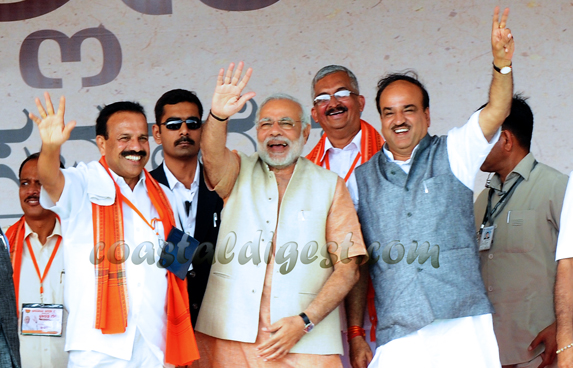
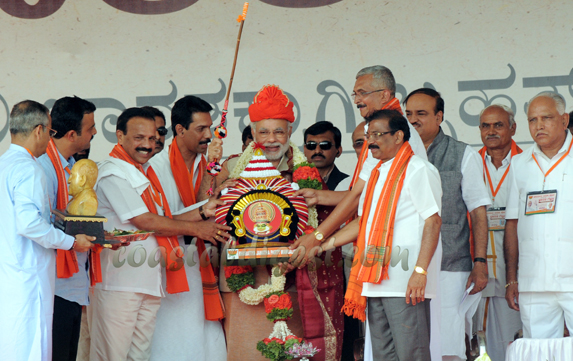
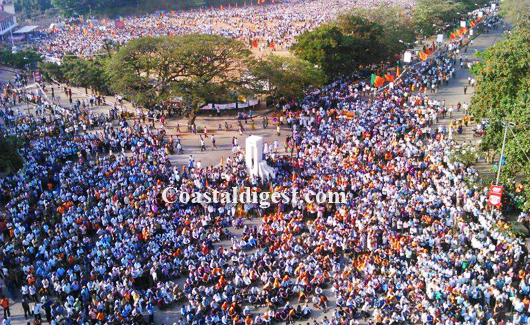
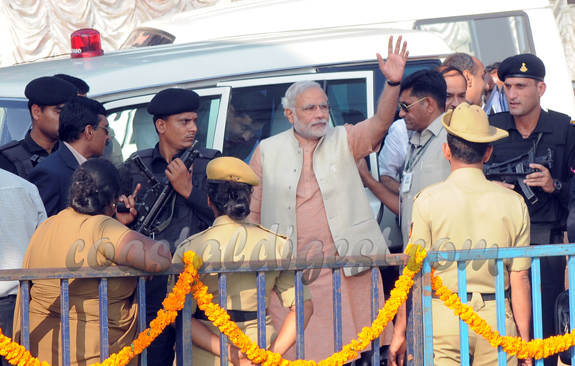
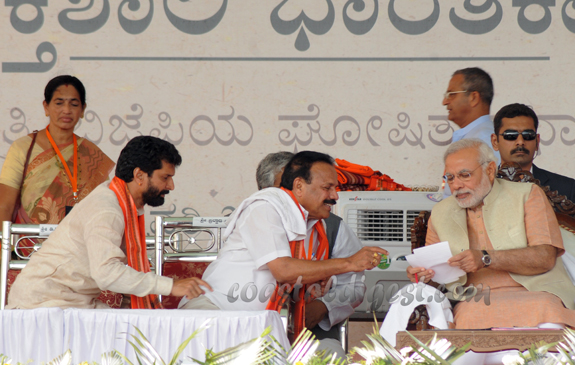
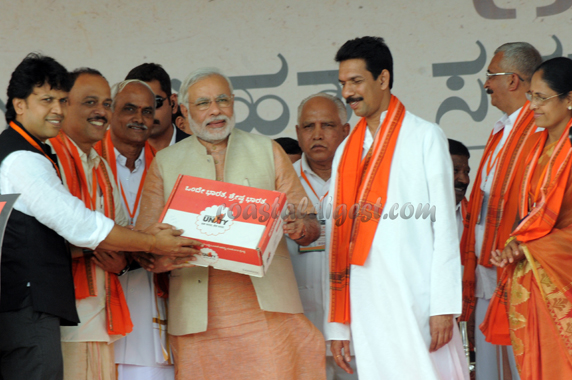
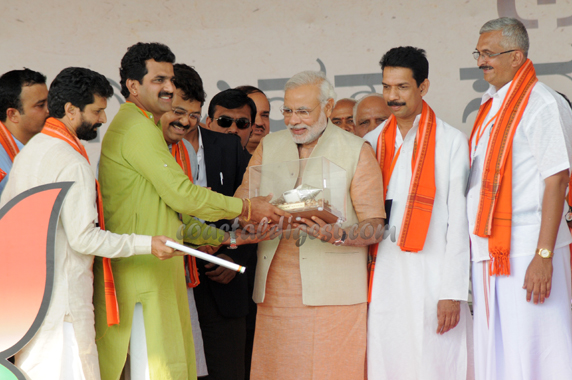
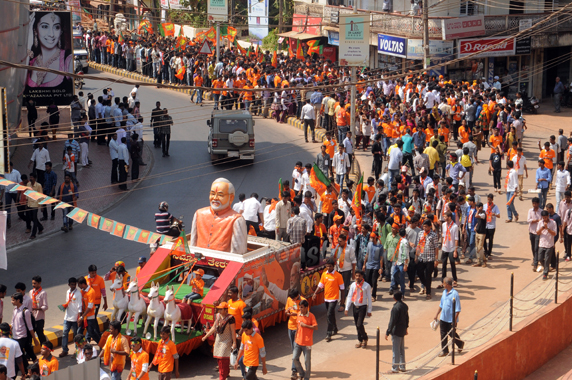
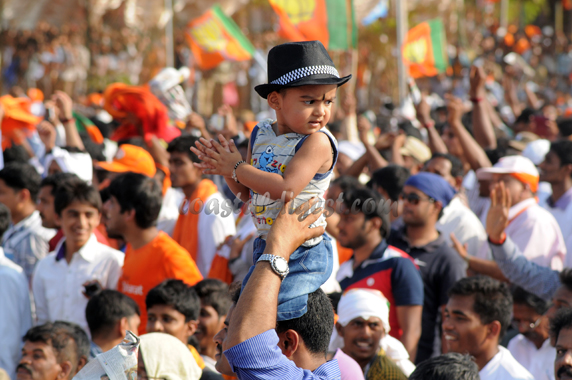
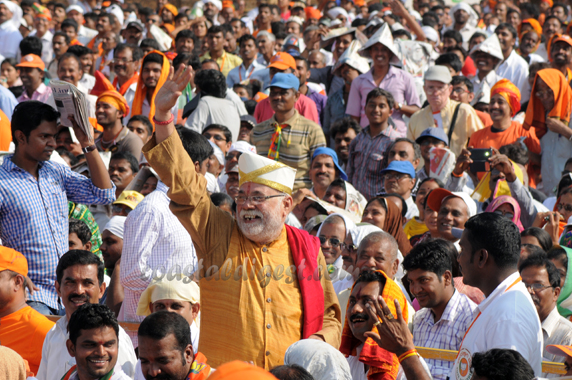
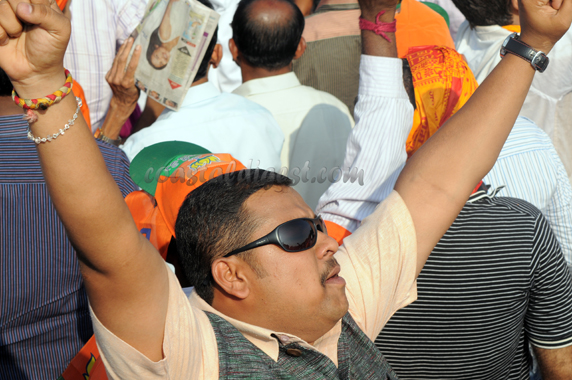
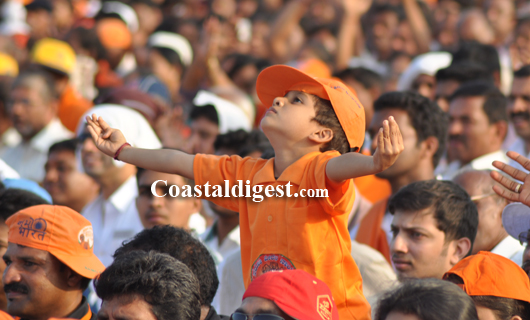
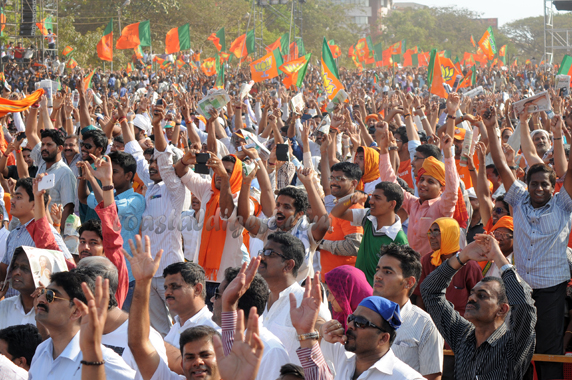
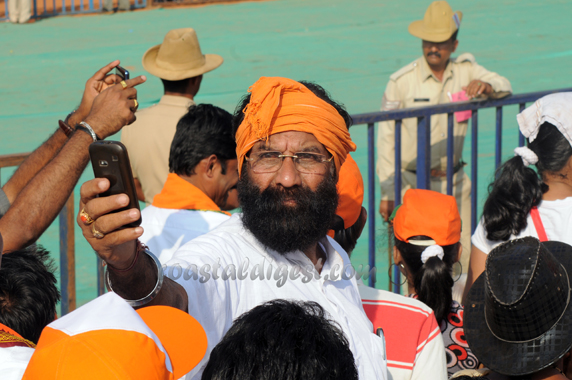
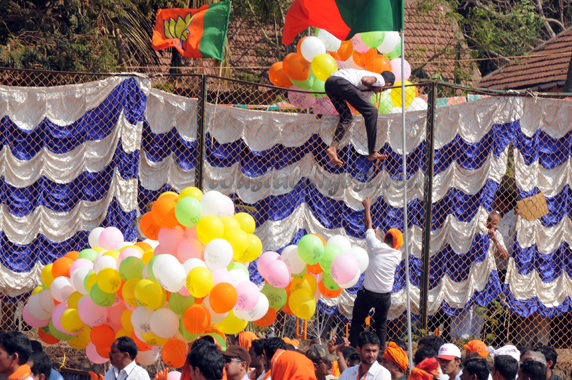
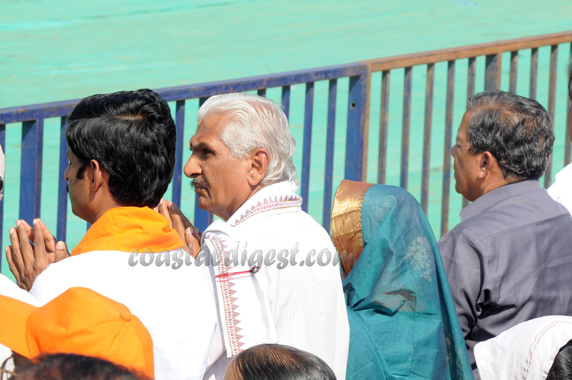
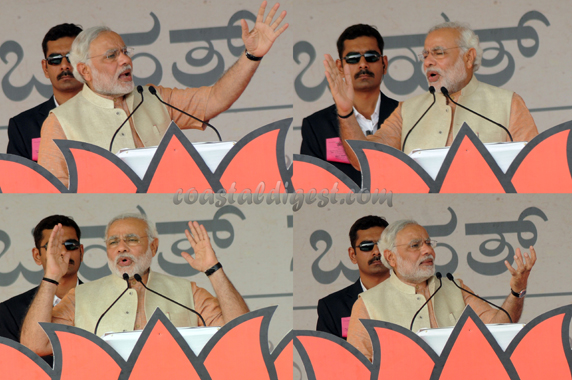
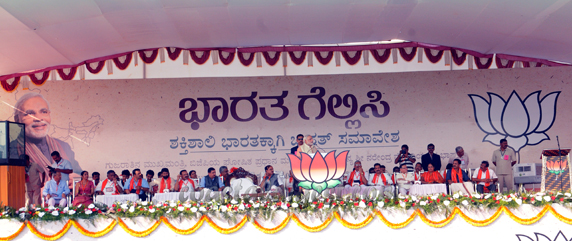







Comments
Add new comment